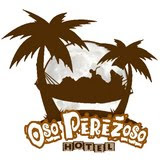Napkin Granting
>> April 10, 2010
A new friend of ours in Ethiopia shared an interesting and informative tale that centered upon on her past work in Sudan.
Working for “X” Embassy in Sudan, “Suzie” arrived April 1, 2006 on an 18 month tour. One of her first tasks was to disperse aid. She requested submissions for projects that would fit with government goals: providing aid to sustainable projects that would improve social and economic development.
During this period, Sudan was in time of war and crisis. Because of this notoriety, it was a poster child for aid in Africa. Suzie was there intending to make a difference. She wanted to uphold the values of her home country in Europe.
Suzie received many proposals. In May, 2006, representatives of some of the highest profile aid agencies in Sudan came calling. They were polite. They asked her to business lunches. At lunch, they wanted to discuss the progress of review for their proposals. “Your predecessor Tom always approved our projects.” they told her. “We are counting on the Euros this month if our programs are to continue.” they insisted.
“How can you tell me you have always received this aid,” Suzie replied, “our aid program has only existed since 1992.”
“Well,” they would reply, “Tom always got us our money by May. He knew how critical this support was.”
“I am not Tom,” said Suzie “and my program says responses should be finalized and aid given out by October. I plan to review each proposal and make decisions based on their quality of sustainability.”
The representatives of the NGOs went away very upset. They wrote letters to Tom, the Embassy ambassador, and staff asking for insight as to who this person was and whether she was qualified.
Suzie went back to work. She carefully reviewed each of the two dozen proposals she had received. In October, her decisions were final. None of the four big NGOs would receive any aid (Tom consistently gave 500,000 euros to in each of the previous four cycles).
Instead of making easy, expected decisions about funding, Suzie gave aid to mostly new and innovative small grassroots organizations that proposed very small windows of need for assistance. He favorite example was a farm cooperative that was moving into butter production, their plan was to become sustainable and she awarded them 10,000 euros. Their proposal was written on napkins, but she gave them aid because they qualified and because their plan had the goal of becoming independent of the giving.
Suzie also funded small water purification enterprises. These were quasi non-profit micro-lending enterprises where the aid would go to a credit union… they in turn provided micro-loans to small entrepreneurs who would buy water purification systems and sell clean water at half the asking price in in cities, towns, and small rural villages. She also funded a gun buy-back program in which the guns were decommissioned and melted down to create pubic art. Her biggest grantee was the Swiss Red Cross which had an 85% aid distribution program which impacted over 50 sustainable projects. They got the maximum allotment of 500,000 euros. All of this meant a great deal of extra work for Suzie. She spent many days traveling to hard to reach, forbidden, or even ‘godforsaken’ places. But, she always found the visits empowering and motivational to her work.
Word got back to her superiors back home of her unorthodox granting. Suddenly, everyone who she worked with was upset. She stopped being invited to the polite business lunches. Suzie got calls from her state department back home. “How can you fund these proposals,” they asked? “These are written in tribal languages and Sanskrit! We even have one here that was submitted on a napkin!” Suzie had her answer: “there was never a request for penmanship or materials needed for submission. Their submissions were simply the best qualified and met all of our requirements. That is why I rewrote summaries, mission statements, measures and outcomes in our language. When we ask for proposals for a program in other countries at home, we don’t ask that those proposals be written in another language, do we?”
Suzie left a lot of people stumped. She had not dispersed even one third of her allotments of aid. “Of the qualified projects, I only gave them what they were asking for or the maximum award qualified. The other projects did not even qualify, so why would we award them?” She was right.
As the year progressed, Suzie was requested to meet with the Ambassador, the Embassy CFO/COO, and to conduct extensive accounting interviews. Suzie went to her meetings prepared. She had done her research. Of the major NGOs who had applied for aid, only one had overhead costs of less than 80%. Most had overhead in the mid 90th percentile. Tom, her predecessor, it turned out, had not liked to travel to follow up a required by the Embassy. He had conveniently worked only with those agencies that produced regular and detailed reports with photographs and all accoutrement required to submit his reports. Therefore, he could not have possibly worked with the type of organizations that Suzie chose to grant.
Suzie got a big promotion. She is now chair of the committee for aid distribution to sub-Saharan-East Africa. This year, she will give a keynote address to the Conference on African and Asia Economic Development at the Hague, Netherlands. We hope she makes a big impression!!
Tom, Suzie’s predecessor, also got a promotion, he is in charge of international audits at the home office. Too bad.

.jpg)


0 comments:
Post a Comment